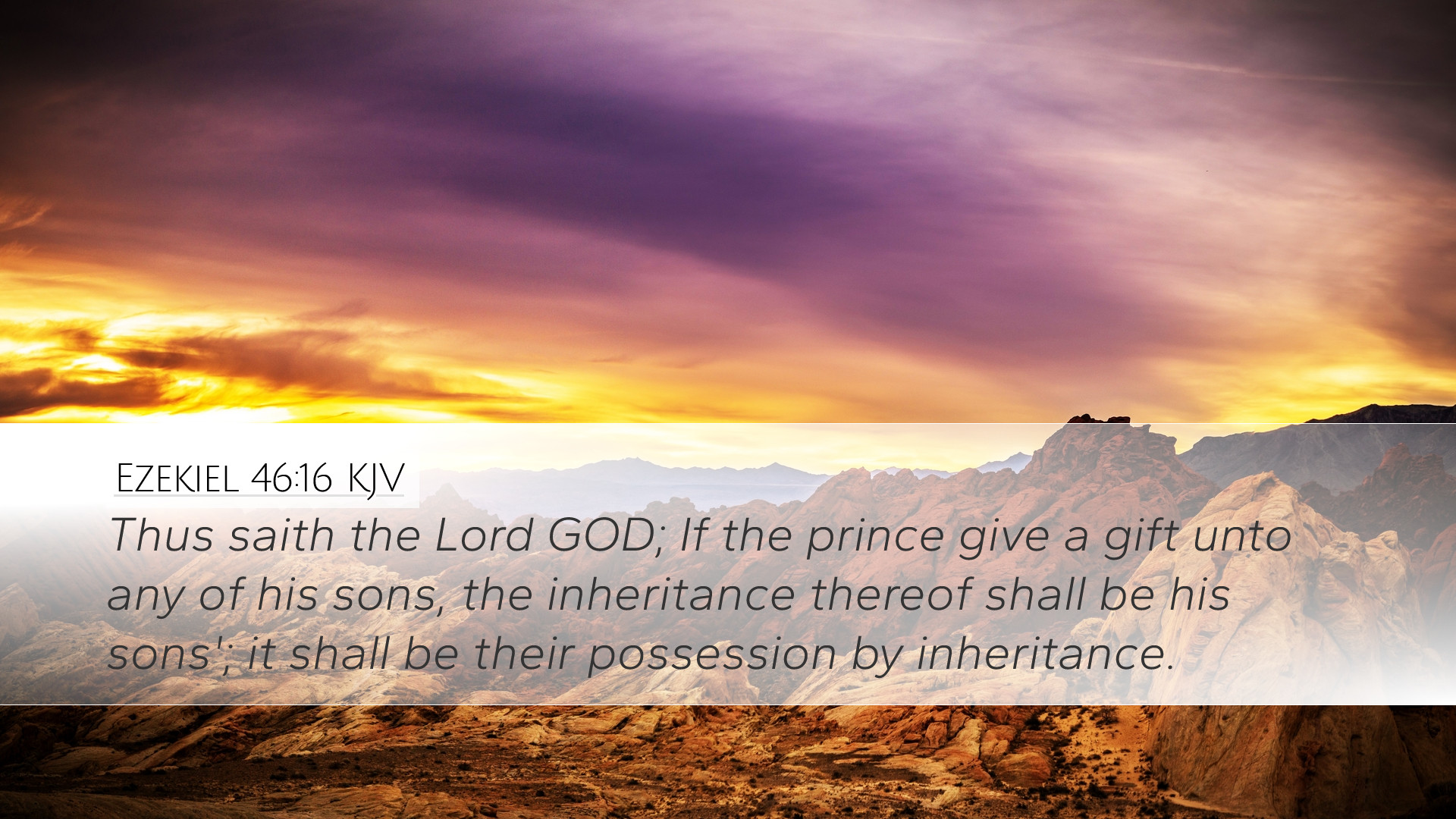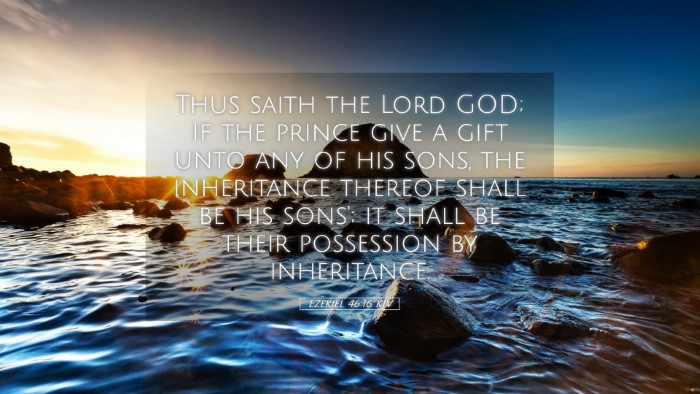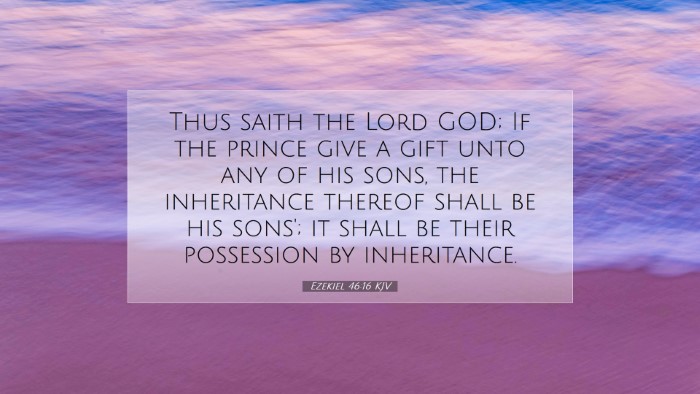Ezekiel 46:16 - Commentary
Verse Context: Ezekiel 46:16 states, "Thus saith the Lord God; If the prince give a gift unto any of his sons, the inheritance thereof shall be his sons'; it shall be their possession by inheritance."
Introduction
The verse presents a significant understanding of inheritance and the responsibilities accompanying positions of leadership within Israel. It emphasizes the doctrine of inheritance as a profound theological point within the Old Testament context. By examining commentaries by noted Bible scholars, we can glean deeper insights into the implications of this passage for Israel's governance, the character of the prince, and the overarching theme of God's order.
Insights from Matthew Henry
Matthew Henry observes that this verse illustrates the principle of inheritance, particularly the distinction between the prince's role and that of his sons. Henry notes that the gift given by the prince signifies both authority and generosity, yet it remains contingent upon the existing laws and traditions regarding inheritance.
- Importance of Leadership: The passage underscores the prince's responsibility to act justly, highlighting that any gifts bestowed upon his family must align with God's ordinances.
- Godly Succession: The intent behind the gifts is not merely personal gain but is designed to ensure a rightful succession in Israel's leadership, reflecting the stability of a divinely ordered society.
Insights from Albert Barnes
Albert Barnes provides a complementary perspective, focusing on the legal aspects of inheritance within this context. He emphasizes that such regulations were paramount in ensuring equity within families, preventing disputes, and solidifying family integrity.
- Legal Framework: Barnes indicates that this provision implies a structured legal framework governing how such gifts and inheritances should be managed and passed on.
- God's Sovereignty: The stipulation also reflects God’s sovereignty over familial and societal structures, ensuring that leadership remains within the divine parameters established through the Mosaic Law.
Insights from Adam Clarke
Adam Clarke offers a broader theological lens, linking this regulation to the overarching themes of divine justice and mercy. He comments on the significance of proper inheritance as an aspect of God's covenant community, where each generation is entrusted with not only physical possessions but also spiritual heritage.
- Spiritual Inheritance: Clarke posits that the prince's gifts represent God's blessings, extending beyond material wealth to include religious duties and responsibilities.
- Covenant Community: The notion that children inherit the gifts highlights a generational continuity within God’s covenant, reinforcing the importance of maintaining faith and devotion within the family unit.
Theological Implications
The theological implications of Ezekiel 46:16 extend well beyond the historical context. Here are several key points to consider:
- Divine Order: This verse is a clear example of God’s intention to establish order within His people, indicating that governance involves both authority and responsibility.
- Family and Community: The emphasis on family inheritance reflects the importance of familial bonds within the Israelite community and points to God’s desire for unity and continuity.
- Legacy of Leadership: The implications for leaders today are profound; those in positions of authority must consider not only their gifts but also how they impact future generations.
Conclusion
Ezekiel 46:16 succinctly encapsulates the principles of justice, inheritance, and divine order that govern both familial relations and societal structures. As Matthew Henry, Albert Barnes, and Adam Clarke elucidate, this verse serves as a reminder that leadership is not merely about authority but also about stewardship and legacy. Pastors, theologians, and biblical scholars can draw from this passage the importance of righteous leadership which honors God's laws and ensures a nurturing environment for future generations within the covenant community.


